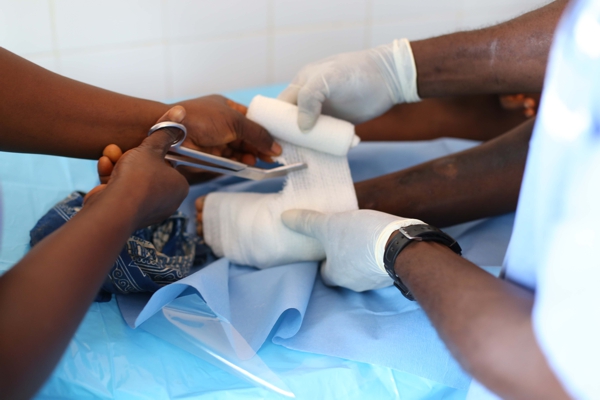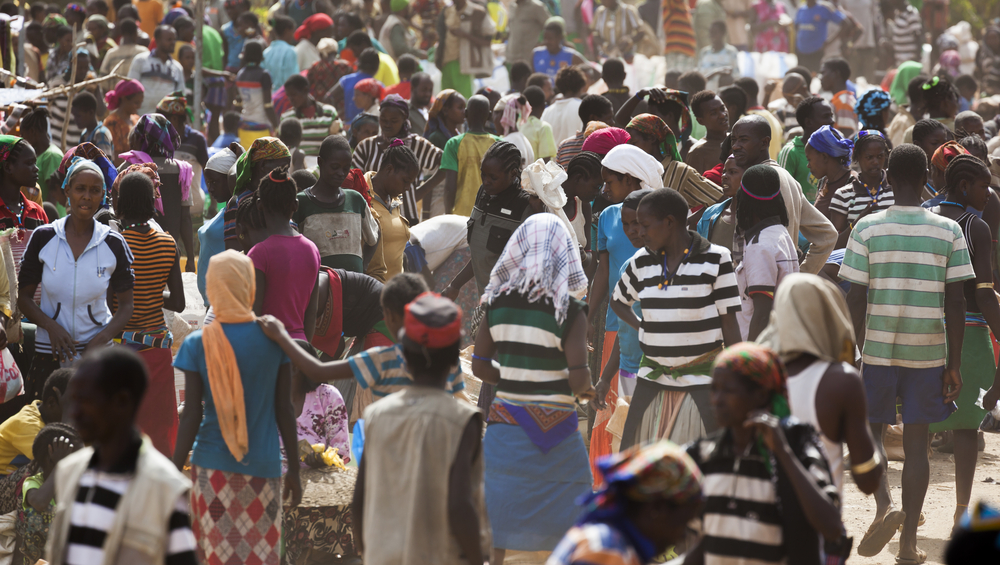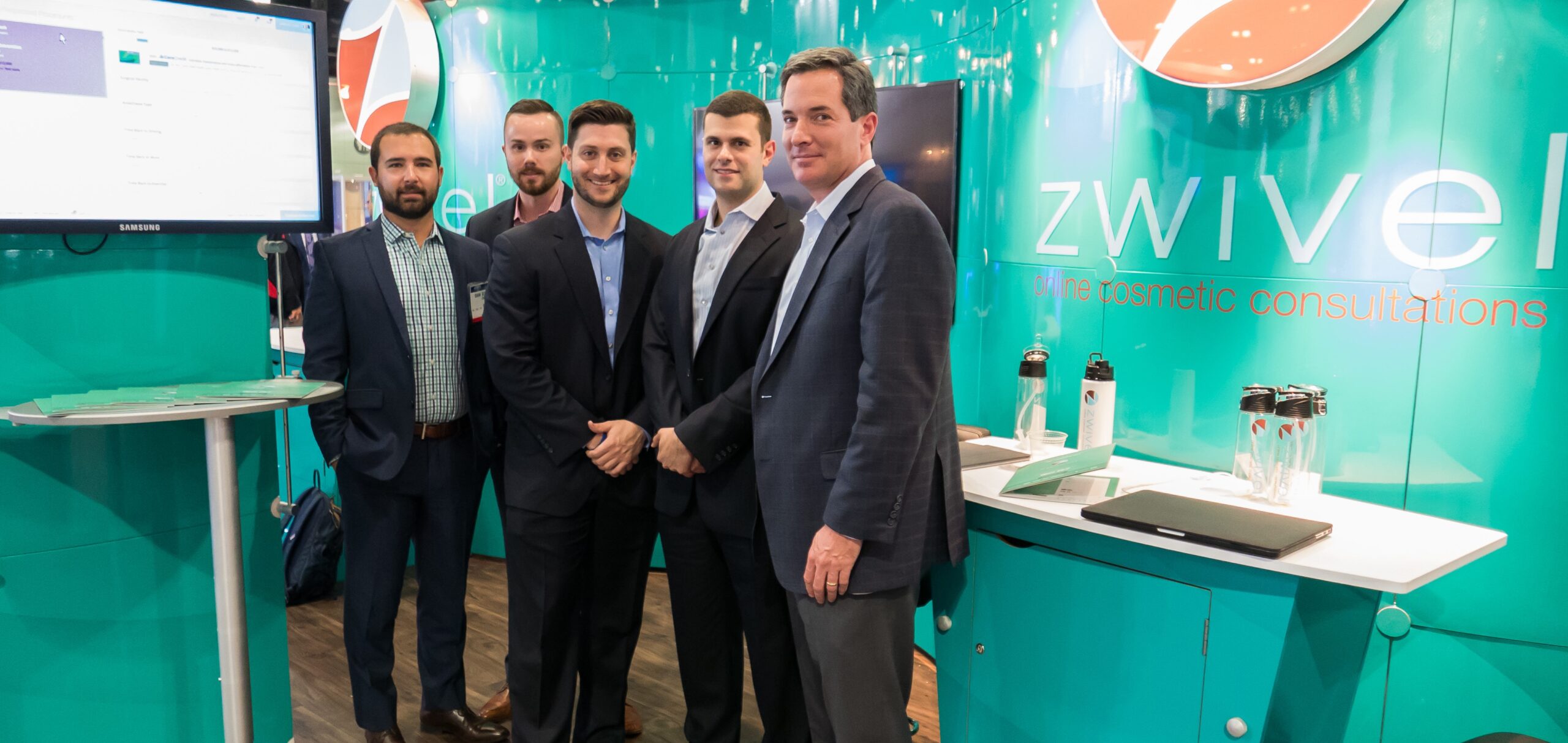Ibrahim was only 8 years old when, in the summer of 2014, a fire ravaged his home in the Ivory Coast. The boy made it to safety, but was severely burned on his arms and legs, leaving him hospitalized for almost six months. The faulty fuse box that started the inferno also cost him two of his siblings, his older brother and younger sister.
Although his wounds were dressed and bandaged, surgery to help with the healing process was impossible as his hospital lacked the necessary resources. In unimaginable pain, Ibrahim and his father, Adama, could only wait and hope for the best.
After four long months, the young boy’s wounds appeared to have closed, but the scar tissue still itched and hurt. The scarring and swelling left him unable to walk as he had before the incident. Adama was heartbroken to see his son unable to run and play like he once had with the other children in their neighbourhood.
After an extremely challenging time, the family’s fortunes took a turn for the better when they learned about ReSurge Africa, a non-profit reconstructive surgery organization, from one of the group’s former patients. Wasting no time, the father and son immediately set off from their coastal city of Abidjan, to Accra, Ghana, where the closest ReSurge Africa clinic was located, some 600 kms and an 11 hour bus ride from their home.
Once there, through a combination of plastic surgery and physiotherapy, the medical professionals at ReSurge were able to provide Ibrahim with the medical attention he so desperately needed, ultimately helping the boy regain his mobility while simultaneously reducing the severity of his scars.

ReSurge: Plastic Surgery as A Humanitarian Mission
Plastic surgery is commonly associated with beautification, and usually performed for purely aesthetic reasons. Of course, it also serves another purpose: giving people their lives back after tragic injuries or dreadful diseases. These procedures range from skin grafts for burn victims to reconstructive surgeries for patients afflicted by flesh eating disease.
Many areas of the world ravaged by war and poverty are in dire need of specialized medical care, yet remain innacessible to skilled practioners. By bridging the gaps in health care coverage, non-profit organizations that provide plastic and reconstructive surgeries have become a vital humanitarian service.
ReSurge was founded in 1993 by Jack Mustardé, a pioneering Scottish plastic surgeon who, while visiting Ghana, was surprised to discover that the country had no reconstructive surgery facilities. Over the years, Mustardé grew the organization into an essential part of Ghana’s healthcare infrastructure. Through a combination of governmental and private donations, ReSurge Africa now runs a 70-bed facility with two operating rooms in the country.
The charity not only helps people receive treatment, but also provides locals with the necessary training to become qualified plastic surgeons in their own right. “One success story is Edem Anyigba,” notes Beverley Mannin Medine, a representative from ReSurge.
“Edem successfully passed the exit exam of the West African College and is now a qualified Reconstructive Plastic Surgeon,” says Medine. “He was the only successful candidate from West Africa with a specialty in reconstructive surgery. I don’t think we need any more justification for the continual investment the charity has been making in quality training programs,” says Medine.
The charity was able to send Anyigba to train at the Ganga Hospital in India. While specialist training is currently done abroad, the organization hopes this type of education will eventually take place locally. “In the future, the training will be African to African,” says Medine.
Today, the organization is expanding to provide services in other areas, like Sierra Leone. By 2002, after more than a decade of brutal civil, the country’s infrastructure was decimated. “With few resources of its own, Sierra Leone desperately needs help training local people to treat others suffering disfigurement and disabilities resulting from the war, as well as those who need these treatments to deal with other diseases,” says Medine.
Since work began in the country in 2009, ReSurge has made progress in its training efforts. “Sierra Leone’s first two Reconstructive Surgeons, Eric Wongo and Abdulai Jalloh, are both well into their sixth year of training,” says Medine.
In the future, the training will be African to African.
– Beverley Mannin Medine, ReSurge Africa
Facing Africa: Noma Surgery
ReSurge is not alone in its quest to bring plastic surgery and medical education to areas in need. Other organizations provide different types of reconstructive surgeries. Certain charities, like Facing Africa, strive to bring expert medical care to remote areas.
“Facing Africa is an organisation that sends two teams of highly skilled plastic, maxillofacial and craniofacial surgeons to Ethiopia twice a year to do reconstructive surgery,” says Chris Lawrence, Chairman and CEO of the group.
The charity focuses its efforts primarily on noma, a type of gangrene that typically affects malnourished children living in unhygienic conditions. Noma attacks and destroys the mucus membrane of the mouth, causing parts of it to erode. If caught early, treatment can be non-surgical, consisting of a combination of antibiotics and proper nutrition.
If left untreated, however, mild early warning signs can, in a matter of days, suddenly turn to severe swelling of the face and scabbing. Once the scabbing subsides, holes are left in the faces of victims, exposing their teeth and gums.
Treatments for advanced cases of noma often include plastic surgery procedures to remove damaged tissues and the reconstruction of facial bones. The World Health Organization estimates that 500,000 people live with noma, many of them in sub-Saharan Africa.
90 per cent of noma cases are fatal.
When Lawrence learned of noma in 1998, he became determined to help those who suffered from the disease. Instead of establishing a permanent presence in one location or transporting patients to England, Facing Africa chose to make the most of their funding by organizing smaller expeditions through an international network of medical professionals.
Beyond the life threatening damage, noma and other major facial deformities often cause victims to be ostracized from society. For over six years, Zinash has lived with a large facial tumor that has impeded her daily life. The young Ethiopian woman stopped attending school and regularly covers her face in public due to the reactions she receives from those around her.
Treatment would normally be out of her reach, but Facing Africa is arranging surgery for her. “Zinash is our biggest case for the May 2017 mission,” says Lawrence, “No hospital in Ethiopia would offer her treatment.” The organization is planning to both remove the tumor and reconstruct her jaw.
Like ReSurge, Facing Africa also encourages educating locals to provide better homegrown efforts in the future. During its deployments, the organization offers lectures and presentations to local doctors, surgeons and nurses in the attempt to establish an educational network that will eventually become self-sustaining.
According to Facing Africa, Ethiopia, a nation of over 80 million people, has only 12 plastic surgeons in the entire country. By providing training, both organizations are striving to make it possible to one day locally source expertise on a larger scale, and in turn, better serve the needs of local citizens.
Find out more about ReSure and Facing Africa:









